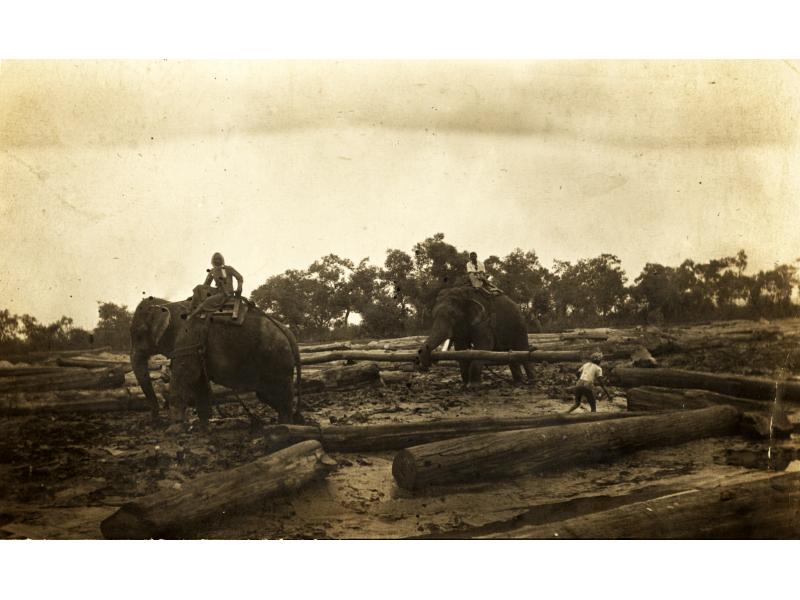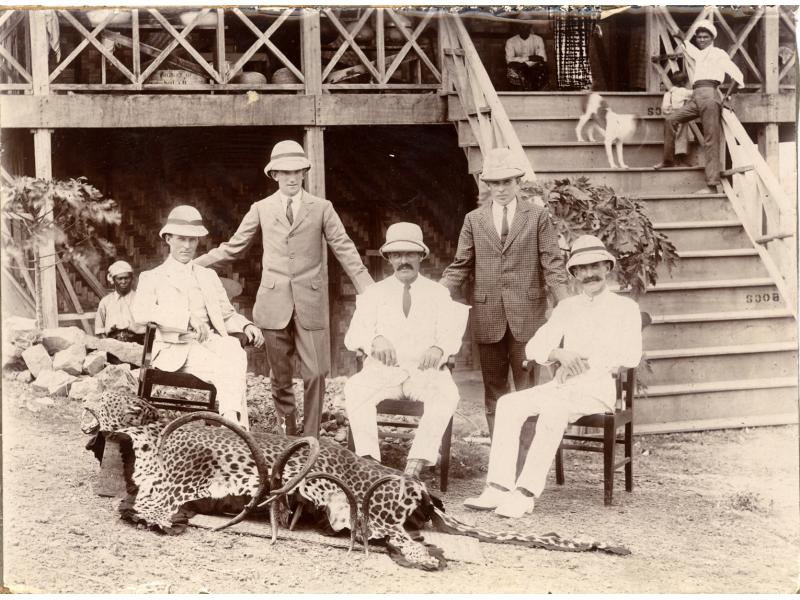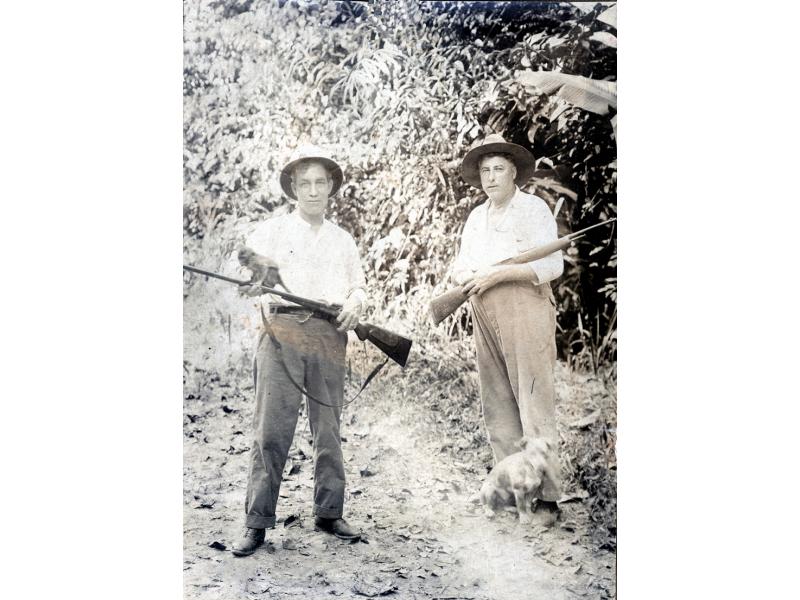Add new comment
J.W. Crosbie, originally from the Ottawa region, moved to Petrolia in 1868 after a brief period working in the United States. He was known as an expert wood worker and quickly learned the art of building and operating the Canadian pole-tool drilling rig, a skill which served him well in the remote oil fields of South East Asia.
His first oil contract for work abroad was for an English company operating in British Burmah (modern Myanmar), where he would have a hand in building the first oil derrick on the shores of the Bay of Bengal along with R.A. Townsend and William C. Bell.
He departed in 1880 and wrote to the Petrolia Topic detailing some of his first impressions. The area of operations was located on a secluded island, covered with thick jungle, and frequented by snakes, tigers, deer, wild boar, lynx, wild cats, monkeys, and jackals. Crosbie, apparently, did not see these animals as a threat, but rather as a source of entertainment, noting that the large variety of animals was “enough to suit the taste of the most ambitious sportsman.” In fact, at the time of his writing, he had already shot several wild cats and one jackal, and had set his sights on a tiger, although he joked that the tiger was so big that it would take a cannon to kill it.
Crosbie was so fascinated by his surroundings that he wished he could spend more time seeing the wonders of the country rather than working. However, even the work of oil drilling provided a few exciting points. “There are plenty of elephants,” he wrote, “which are taught by the natives to pile lumber and draw sawlogs.” He concluded by saying that if he were younger, he would stay.
He returned to the international oil fields a few years later on a contract to Sumatra, this time accompanied by his wife, who stayed for over a year, and his nephew, J.E. Crosbie. In Sumatra, J.W. Crosbie once again played a pioneering role in bringing the Canadian pole-tool drilling method into operation. His fascination with the local wildlife continued as Edward Winnett wrote in his journal about hunting crocodiles with Crosbie. On another occasion, when Crosbie was offered a position with another company at the other end of Sumatra at an increase in salary of $4000 per year, he was distraught about leaving because his pet monkey had disappeared in the night and he had been hoping to take it home to Petrolia with him.
Winnett also wrote on a couple of occasions that Crosbie was complaining of pain in his joints and even spent a month in a hospital in Java. Although he recovered from that particular incident, he died in Sumatra in 1899.



 J.W. Crosbie wrote home about seeing many elephants which were trained by the natives to pile lumber. Here they are pictured near Rangoon, Burma (modern Yangon, Myanmar).
J.W. Crosbie wrote home about seeing many elephants which were trained by the natives to pile lumber. Here they are pictured near Rangoon, Burma (modern Yangon, Myanmar).  A group of unknown International Drillers show off the results of their hunting. J.W. Crosbie noted the diversity of the animals in Myanmar and enjoyed hunting.
A group of unknown International Drillers show off the results of their hunting. J.W. Crosbie noted the diversity of the animals in Myanmar and enjoyed hunting.  J.W. Crosbie was disappointed to be leaving his position in Sumatra because his pet monkey had disappeared the night before. Here, two unknown International Drillers stand in the jungle with rifles. A monkey sits on the left rifle.
J.W. Crosbie was disappointed to be leaving his position in Sumatra because his pet monkey had disappeared the night before. Here, two unknown International Drillers stand in the jungle with rifles. A monkey sits on the left rifle.